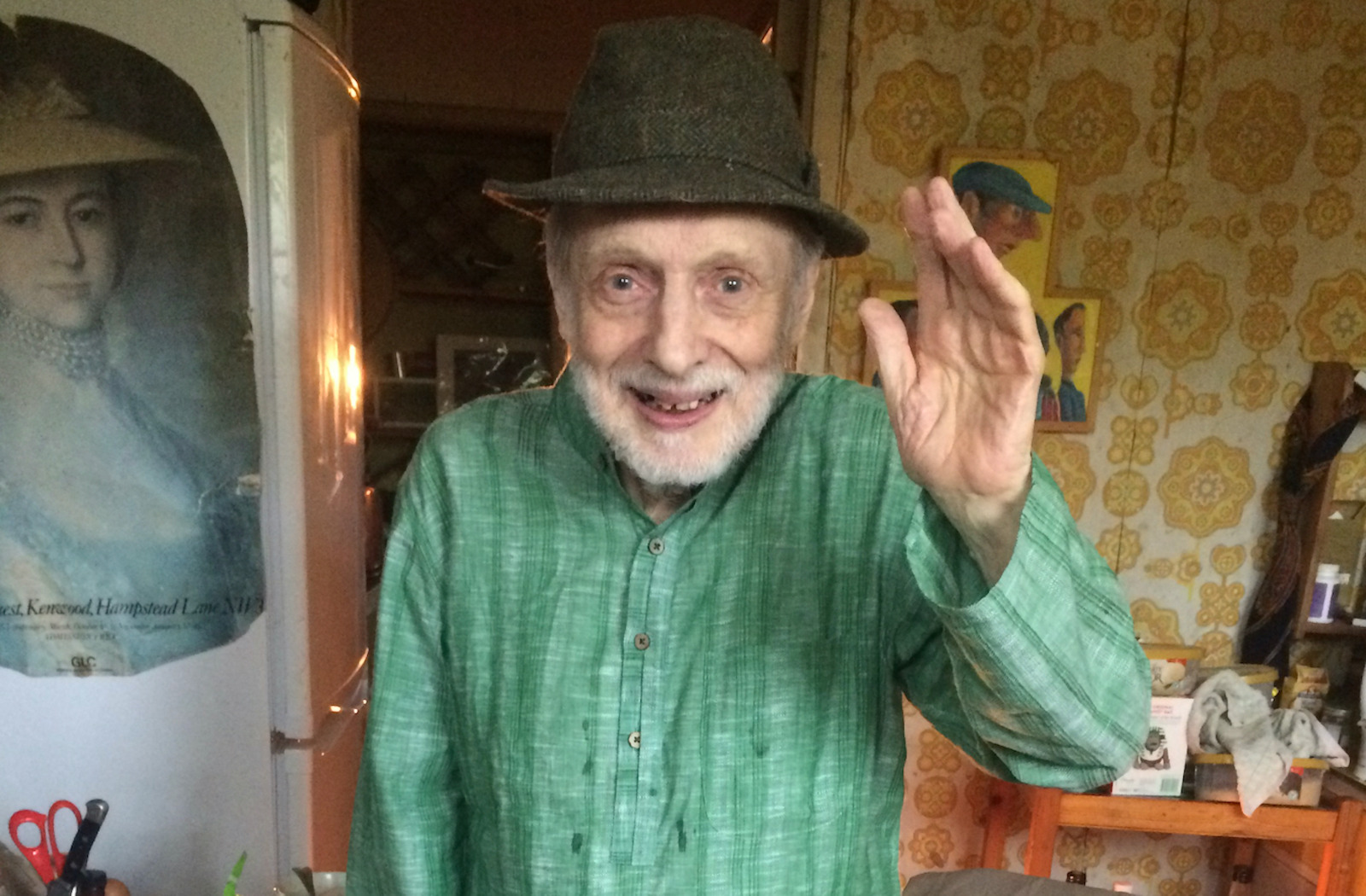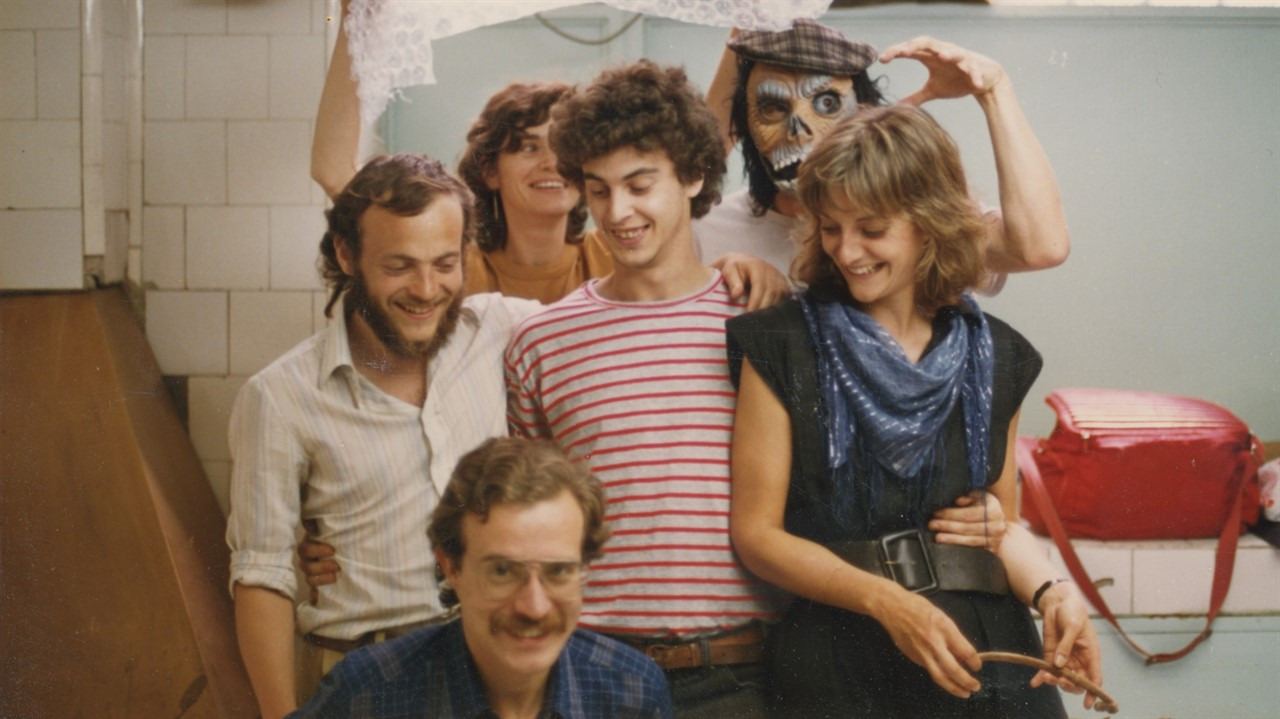Much Ado About Dying
(Ireland/UK, 83 min.)
Dir. Simon Chambers
Programme: World Showcase (North American premiere)
David says he always wanted to play King Lear. While he never enacted the part as Shakespeare wrote it, he makes it his own in Much Ado About Dying. The documentary is a Shakespearean tale of aging gracelessly. Uncle David doesn’t go quietly into the night. However, his nephew, Simon, encounters the foul stench of death over several years. A filmmaker, Simon receives an unfortunate request from David while he’s shooting a film in India. David insists that he’s dying. Moreover, guncle that he is, David says that he has nobody to help him. Simon, who is also gay and understands many things that go unsaid between David and the family, acquiesces. He returns to England, but he doesn’t know that he’s playing Lear’s fool.
Simon inevitably becomes David’s carer as the years go by. David isn’t actually dying when Simon returns home. However, he lives in a sorry state. Simon observes an unruly home that is a fire hazard of hoarding and madness. David, a penny-pinching packrat, keeps oodles of junk in his flat. Moreover, he has a fondness for portable heaters—cheap, rickety ones that he buys en masse when they’re on sale. He plus them in with a tangled mass of extension cords that run here, there, and everywhere. They’re turned up so high that the dust bins are melting and David’s legs are literally cooking. Simply put: Simon quickly observes that David sorely needs assistance.
“The prince of darkness is a gentleman!”
Chambers films his visits over the course of several years. Each trip to David’s apartment reveals a lonely man hungry for an audience. He lights up in the camera’s presence. He performs like a Beale from Grey Gardens, delivering all his lines with theatrical panache. But beyond the markers of a starving artist’s loneliness and love for performing, these observations of David’s declining health also reveal the cracks in the social system. As a single man in poor health, but not especially dire economic circumstances, David can’t be forced into care. Moreover, Simon can’t get social services to look after him since David still has enough mental and physical capacities to make his own decisions. David’s just too stubborn to do anything about it.
The film finds additional drama when Simon’s observations of David’s life reveal the consequences of his uncle’s loneliness. Desperate for any companionship, David doesn’t say no to anybody (except, of course, for Simon). This habit reveals itself in thousands of dollars thrust away at an object of David’s affection—a visiting care giver to whom he was basically an unrequited sugar daddy—and a well-intentioned contract with a neighbouring Polish couple. They move in with David under the premise of caring for him in exchange for free rent. Both these relationships illustrate how the absence of social care leaves the elderly and other vulnerable people open to exploitation.
“In jest, there is truth.”
Chambers’ lo-fi DIY aesthetic might not be to everyone’s cup of tea, but one can forgive the doc for being rough around the edges. Frankly, a full crew—heck, even a bigger, better camera—likely wouldn’t fit in David’s flat. Moreover, the rough-and-tumble style reflects David’s unfussy attitude. He wants to be the star of the show and nothing gets in the way.
Much Ado About Dying benefits from Chambers’ growing closeness to, and frustration with, his uncle. He doesn’t worry distinguishing between his role as a filmmaker and his role as a relative. He intervenes when necessary when he realizes that people take advantage of David. Chambers steps in because nobody else can or will. Moreover, by having his camera alongside him, he captures the failure of a system to protect people who simply don’t have stable support networks in their lives. Without Simon or the documentary, David’s life might have become a Shakespearean tragedy.
Through the film, though, it’s more akin to one of Shakespeare’s comedies, even if it ends with a death and not a wedding. David is a larger than life figure who knows how to work the camera. The film affords him many moments to embark on lengthy soliloquies as he tells the story of his life. For an actor, that is such stuff that dreams are made of.
Much Ado About Dying screened at Hot Docs 2023.
Get more coverage from this year’s festival here.
Update (5/30/2024): Much Ado About Dying opens at Hot Docs Ted Rogers Cinema on May 30.












